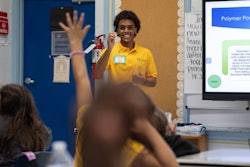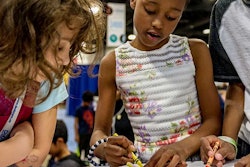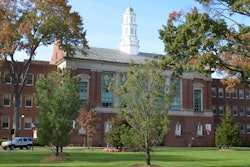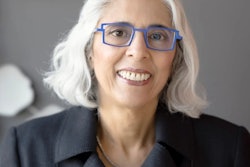As college students graduating in a world defined by climate crisis and public health emergencies, we strongly believe that supporting talented young people from underrepresented groups in STEM (like us) is essential for our generation to tackle the challenges ahead.
 Jordan Troutman
Jordan TroutmanNot only are our voices pivotal in defining the shape of our future, they are also necessary to adequately address problems faced by specific communities. There are, however, systems of selection that filter underrepresented minority students out of consideration at every level, and prevent them from contributing their talents to the world. In order to prevent repeating mistakes from the past, and to make sure we are harnessing the potential of this huge number of students, it is imperative that we not just try to diversify STEM but actively use approaches that we know work.
Many institutions are trying to diversify STEM by taking on the obvious systems of selection that stand in students’ ways: income, geographic isolation, familial commitments, etc. However, a less obvious, but no less pervasive obstacle is that of self-selection. Sometimes, facing a world that hasn’t believed in them or invested in their success, students take themselves out of the running before the race even starts.
This is a nuanced issue with far more complex solutions. How do you show students that their aptitudes will lead them to positions that are, in their minds, reserved for people not like them? How do you help talented students develop ambitions to match their abilities? How do you convince them to keep running when they stumble? Financial support is important in helping students access college and complete their degrees, but we want to emphasize that knowing students personally is essential to helping them achieve their dreams.
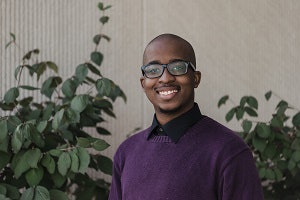 Samuel Earl Patterson, III
Samuel Earl Patterson, IIIWe’re both members of the Meyerhoff Scholars Program at the Univ. of Maryland, Baltimore County (UMBC), which has a structure in place proven to help students succeed. Many people across the country have heard about the Meyerhoff program through alumna Dr. Kizzmekia Corbett, a leader in creating the Moderna COVID-19 vaccine. Simply put, the goal of the program is to increase the diversity among future leaders in science. Beyond the financial reward provided to scholars, the program emphasizes high expectations, mentorship, connecting students with opportunities, and supportive community.
In the Meyerhoff Scholars Program, we are never left to our own devices if we don’t want to be. We communicate constantly with our peers and mentors, and we have frequent check-ins. We are able to access a vast network of people who have been there before, and who are invested in our success. They provide an ever-growing repository of experience, sage advice, and, above all else, community.
While our world faces grave challenges, we are also proof that a process that prepares diverse scientists to tackle those challenges is feasible, and it’s in motion right now.
We’ll graduate from UMBC this week, joining a community of more than 1,400 alumni of the Meyerhoff Scholars Program. As we head to graduate school as an incoming Rhodes Scholar at Oxford and a Knight-Hennessy Scholar at Stanford, we want to take a moment to make sure more students hear about the opportunities available to them, wherever they are attending college.
Above all, community is a necessary component to engaging future scientists, and keeping them engaged as they work to fulfill their potential. So, we ask everyone across the country: if you have a student in your life — an intern in your office, a neighbor down the street, or a family member down the hall — please reach out. Help them see the full range of possibilities for their future, and let them know that they have a community of support to rely on.
Jordan Troutman and Samuel Earl Patterson III are graduating seniors from UMBC. Mr. Troutman will begin a Ph.D. program at Stanford University and Mr. Patterson has been named a Rhodes Scholar at Oxford University.





